This short video explains it all
What is a VPN?
So, what makes a good VPN, how do they work, and what are they used for?
Get Hotbot VPNWhy Do You Need a VPN?
You need a VPN because:

You don’t want hackers or other cybercriminals to steal your data. Once stolen, it can be used to access your private accounts, steal your money, or even assume your identity and blackmail you.

You don’t think organizations should be able to use your data for their purposes. You (probably) didn’t consent to companies using your data for advertising, or to governments using it for surveillance. Unfortunately, this is an everyday risk of using the web. But, you can reduce the risk by using a VPN.

You want to access content locked in your area. Nothing is more frustrating than getting excited for a TV show only to realize it’s not available in your country. By using a VPN to change your location, you can have your TV show and watch it too.

You want to pay less online. Have you ever researched hotel bookings, only to realize that the price for a room has increased when you go back to it? This is thanks to dynamic pricing, where online retailers increase their prices based on your location and search history. A VPN can prevent this by giving you a temporary IP address in a different region.

You use the internet. In today’s day and age, everyone who uses the internet also knows about the dangers it poses. With the widespread availability and affordability of VPNs, there’s no reason not to protect yourself every time you connect.
Let’s Talk Terminology
In any discussion about VPNs, a lot of technical terms are thrown around that may not be part of the average person’s daily lexicon. Since we’re going to use quite a few of those terms, let’s start by defining and explaining some of the most common:

VPN
The acronym ‘VPN’ is short for “virtual private network.” As the name suggests, VPNs are a type of virtual software, rather than a physical product you can hold (that being said, some VPNs are physical, which we’ll discuss below). They give users greater privacy online, by creating a personal network for each user. Still confused? Don’t worry, we’ll give you an in-depth explanation of how VPNs work so you’ll leave this article an expert.

ISP
Yet another of many acronyms used when discussing VPN technology, this one is short for “internet service provider.” Your ISP is the company you pay to access the internet. Popular ISPs in the United States include AT&T and Verizon, for example.

IP Address
Much like your home address, your IP (internet protocol) address is your address online. When you connect to the internet, websites are able to send search results to your device thanks to your IP. This address is also used to identify you and your devices online.

Encryption
One of the main purposes of VPNs is to encrypt your data. This means it takes your activity and scrambles it to outside users, so no one aside from those authorized, can see what you’re doing. For a simplified example, if you search for socks on Google, an encrypted search might spell the word as K-S-C-S-O. Only you and Google would have permission to unscramble the letters.

Protocol
The processes and instructions VPNs use to provide their services. Their purpose is to safely transfer your data over the web, from your device to a server.
The Value of Your Data
Everything you do online creates valuable data about you. For example, a retailer like Amazon can use your search history to recommend other products you might like, which can end up helping them make more money. When you use the web unprotected, a lot of your data may be up for grabs. It can include:
Your location
Your device type
The browser you’re using
The web pages you visit
How long you stay on each site
The ads you click
This data is useful for many reasons, including:

Making money
Organizations like your ISP and online advertisers use your data to make money. Once collected, they can sell it to other businesses for big bucks (who then use it to make money directly from you).
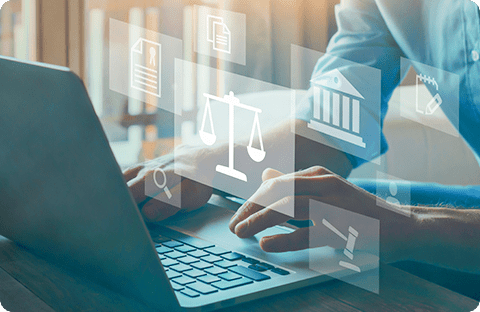
For legal action
Your ISP can be compelled to hand over your online activities if a judge rules they may be necessary for legal action. For example, if you download copyrighted content (through torrenting or some similar activity), the owner of the copyright may be able to sue you for stealing their work.
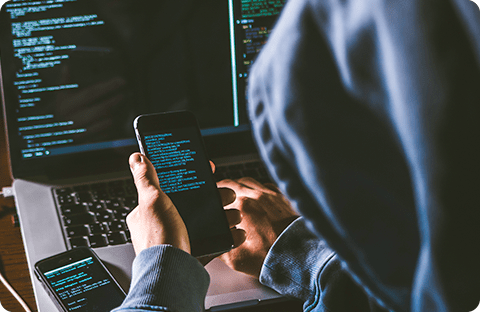
For national security
Many governments justify the surveillance of your online data by claiming that it’s in the interests of national security.
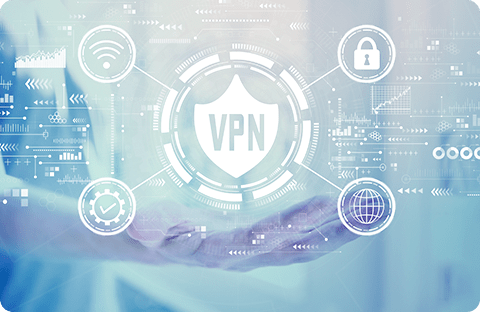
To steal from you
Hackers and scammers can collect your most sensitive online information and use it against you. For example, they can use your banking data to steal your money, or even your identity. It’s even possible for them to blackmail you with some awkward search history items.
How Do VPNs Work?
At the most basic level, VPNs have two goals in mind. When these goals are accomplished, VPNs can be used for a huge variety of purposes.
So, let’s discuss each goal:
-
One: Encryption - The first thing VPNs aim to do is to encrypt all your online activity. It does this by creating a virtual “tunnel.” Imagine an actual tunnel, if you will. At one end is your device (it could be your computer, smartphone, tablet, or whatever else you use to connect to the web). At the other end of the tunnel is the website you’re visiting. All of your activity passes through this tunnel, and is encrypted to boot, which means that no one but you and the website you’re on can see or understand your data.
-
Two: Anonymity - The second thing VPNs do is assign you a temporary IP address, while routing your internet traffic through their own servers. This prevents websites from learning who you are through data assigned to your regular IP address, stops snoops from tracking your activity back to your devices, and even hides your activity from your internet service provider.
In order to provide you with encryption and anonymity, a VPN service must use the right protocol for your needs. These protocols are integrated with the VPN and not all are created equal. The most common protocols are:
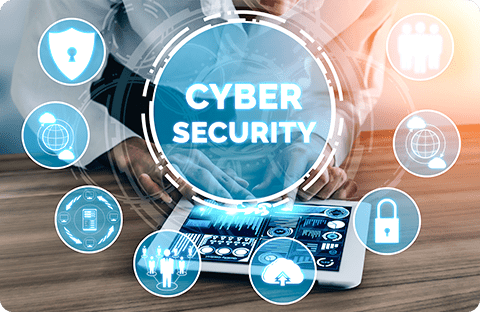
OpenVPN
This is one of the most common protocols for VPN services to offer because it’s secure and open-source (which means anyone can inspect the code for flaws or weaknesses). In addition, OpenVPN works in conjunction with either the TCP protocol (which focuses on efficient encryption) or the UDP protocol (which prioritizes speed). Many VPNs integrated with OpenVPN allow users to choose between these two protocols, for a customized user experience.
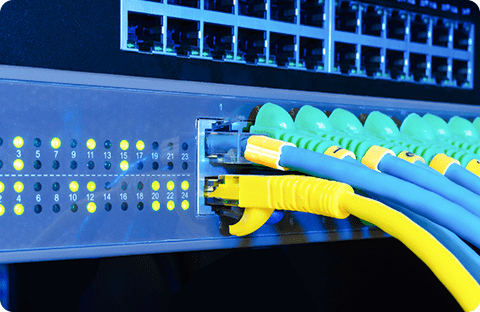
Wireguard
The Wireguard protocol is relatively new to the VPN market. Like OpenVPN, its code is open source and can be inspected by anyone at any time. In addition, the encryption and speed offered by this protocol is state-of-the-art and even outshines the competition. However, it’s so new that it still leaves something to be desired in the privacy department, because it doesn’t fully anonymize users...yet.
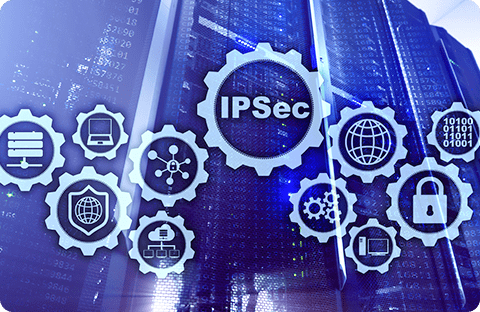
IKEv2
Developed by Microsoft and Cisco, IKEv2 is a security protocol that offers a fast, stable encrypted connection. It works with the IPSec protocol (short for Internet Security Protocol) to authenticate and encrypt the data flowing between two destinations (a device and a server). IKEv2 is one of the most stable protocols out there.

L2P/IPSec
Unfortunately, many VPN services use the L2P/IPSec protocol for security. However, this protocol (short for Layer 2 Tunnelling Protocol) is now outdated by most standards. When on its own, it doesn’t encrypt any data flowing through the established tunnelling network. Instead, it relies on other protocols like IPSec to provide encryption, which isn’t always enough when talking about internet security.
Types of VPNs
Because different users require unique security protocols, depending on their individual needs, VPNs have evolved to meet those needs. Currently, there are two main types of VPNs:
-
One: Remote-access VPNs encrypt any data sent to or from your personal device. This type of VPN is most commonly used by individuals who want extra security for their day-to-day online activities.
-
Two: Site-to-site VPNs are used mostly by businesses who need to create a secure network between multiple sites and multiple users. They may be either intranet-based (used internally to create one private network for all users on that network) or extranet-based (which allows the company to share their network with external partners).
In addition, VPNs can come in the form of both software and hardware. Software VPNs, where a digital program is installed onto a device, are the most common format used today. They’re often cheaper and easier to install. Hardware VPNs, on the other hand, are physical devices that create a secure network for all users on that network (they may take the form of a VPN-secured router, for example). They’re especially useful for businesses who want a network for anyone coming and going from an office location, but are rarely used by individuals.
What Else Can a VPN Do?
By encrypting and anonymizing your online data, VPNs are already doing a lot. But, the simple fact is, many users don’t care about those things, especially because they can get in the way of convenience. Fortunately, VPNs can actually make your online activities more convenient, in many ways.

Streaming
If you’ve ever tried to watch a movie or TV show online, only to discover that it isn’t available in your country, you could benefit from using a VPN. Because virtual private networks temporarily change your IP address, this also changes your apparent location. By selecting a server (and thus an IP address) in another country, you can fool streaming services into unlocking content that had previously been off-limits to you.
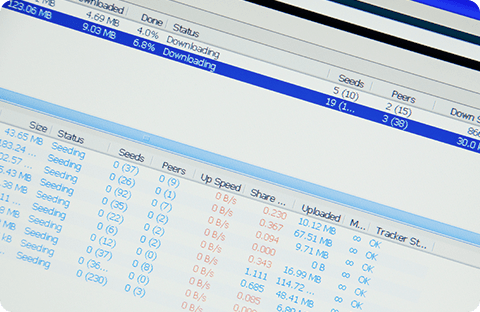
Online gaming
By playing games online, you’re probably using up a lot of bandwidth. This can be expensive for internet service providers, so when they see online gaming in your activities, they may slow your internet speeds (known as bandwidth throttling), causing lag and frustration. If you use a VPN, however, your ISP won’t see that you’re playing games online and therefore they can’t slow your speeds. This may also be true for other activities such as streaming and torrenting.

Torrenting
One of the most popular methods of downloading content online is through torrenting, which allows you to gather files from other users on a torrent network (called a peer-to-peer network). You can download almost anything, from movies to music, and books to games. Unfortunately, because torrenting means you must connect to a shared peer-to-peer network, your IP address may be visible to other users, who can use it against you. In addition, if you’re downloading copyrighted content, your IP address may be used to find and take legal action against you.
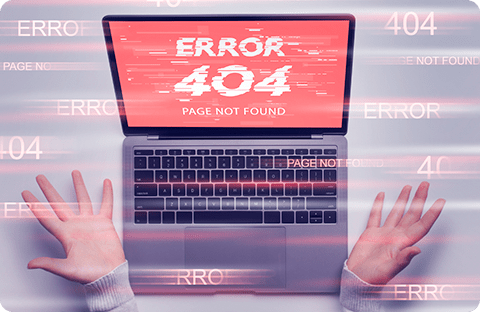
Online shopping
One little known fact about online shopping is that retailers can change the prices of their products based on where in the world your IP tells them you’re shopping from. This is especially common practice for those booking air travel, hotel rooms, or car rentals. However, it’s hardly fair to shoppers, especially if you’re being charged more money based on your geographic location. By changing your IP address with a VPN, you can find the lowest price on multitudes of products and services.
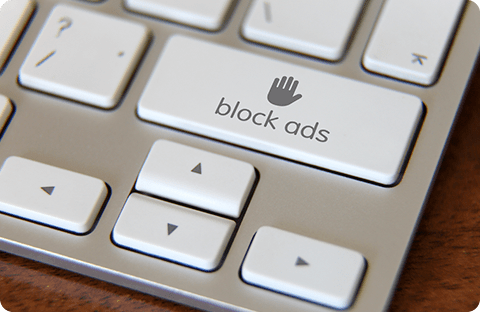
Free yourself from censorship
If you live in a region where online content is heavily censored, you can simply access the web through a VPN.
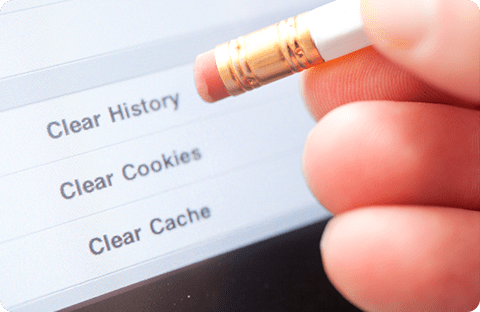
Avoid ads
If the personalized ads we’re inundated with everyday have become simply too much, you can reduce how many you see with a VPN. Tracking ads use information connected to your IP address, so if you change your IP, you prevent personalized ads from recognizing you.
Are VPNs Legal?
Unfortunately, like with many technologies, many users corrupt the purpose VPNs were inherently created for (freedom and privacy for all), and use them to conduct illegal activity online, such as downloading and sharing copyrighted content. This has led to the myth that virtual private networks are also illegal. However, VPNs themselves are perfectly legal almost everywhere in the world. In a few cases, some countries (like China) may ban the use of VPNs, but this is most often due to strict censorship and surveillance laws, which VPNs could undermine.
Buy NowOther VPN Service Myths
Along with the myth that VPNs are illegal, there are many other pervasive myths that surround the technology. Unfortunately, these myths often stop people from using VPNs when they should. So, what is the truth about these myths?
-
Myth: VPNs slow your internet speed. When VPNs first hit the market, the technology left much to be desired. At the time, users did sacrifice speed for security. But, in the decades since, VPNs have improved immensely. Now, they run just as fast as your regular internet connection. In fact, they may even make your connection faster by preventing bandwidth throttling.
-
Myth: Only the ultra-paranoid use VPNs. These are the people who see government agents lurking around every corner, watching their every move. And while the paranoid may indeed use a VPN service, VPNs are truly for every single person on the internet; just because you don’t excessively fear surveillance or criminal activity doesn’t mean you shouldn’t protect yourself against it.
-
Myth: VPNs protect you from every online threat. Some people use VPNs then get mad when their computer still gets infected with a virus. Unfortunately, VPNs do not (and are not meant to) protect you from every threat online. Their main purpose is to increase your digital privacy and encryption. However, they don’t function as firewalls and cannot protect your devices from imprudent link clicks or website visits that may result in viruses or malware. For the most rounded virtual protection, combine VPNs with a good antivirus software.
-
Myth: You have to be a tech genius to use a VPN. Remote-access VPNs encrypt any data sent to or from your personal device. This type of VPN is most commonly used by individuals who want extra security for their day-to-day online activities.
How Can I Tell if a VPN is Good?
That’s a great question, and one a lot of people don’t know the answer to. Some of the less tech savvy denizens of the internet may know they need a VPN, but don’t know how to pick a good one. There are a few features any VPN worth its salt should offer:
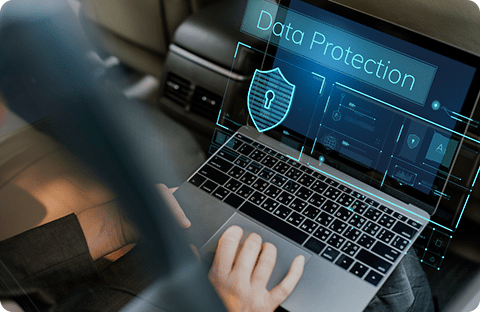
It keeps no logs
If you use a VPN, you do so trusting it to protect your privacy. After all, that’s what VPNs are for. But what if we told you not all VPNs do that? Sure, they may protect your activity from being seen by outside parties...but some of them collect your data on their own and then sell it to the highest bidder, or can be compelled to hand it over by governments under the guise of national security. When selecting a VPN, always look for one that collects no logs. This means that they do not collect and store any identifying information about your activity, and thus cannot give it away.

It uses strong encryption
Offering a no-logs guarantee is an empty promise if the VPN in question lacks good encryption. A poorly encrypted virtual private network runs the risk of hacks and data leaks. When selecting a VPN, look for one that offers AES 256-bit encryption, which is currently the highest standard in digital security.

It offers strong data-transfer protocols
We’ve discussed the types of protocols that are best for VPNs. When selecting a virtual private network service, avoid any that use the L2P/IPSec protocol.
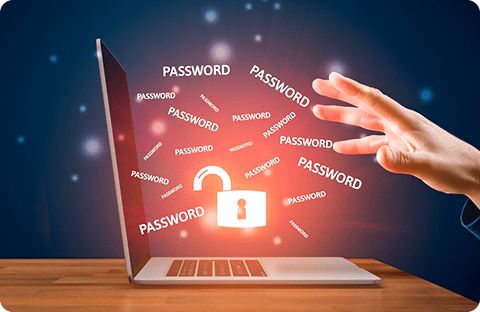
You can subscribe to it for a reasonable price
A lot of people stumble upon “free” VPN services and say “what price could be more reasonable? It’s free, after all.” Unfortunately, in the case of VPNs, free almost never means better. Because these services must make money somehow, they’re most likely doing it through ads and by selling your data without your knowledge. Likewise, a VPN shouldn’t break the bank.

It has a kill switch
Although most VPNs worthy of the name pride themselves on their security and reliability, it’s always possible for outages to occur. If this happens and your connection drops, your data may end up exposed. That’s why you should look for a VPN with a kill switch. If your connection drops, the kill switch will halt all incoming and outgoing traffic, so your data can’t leak.
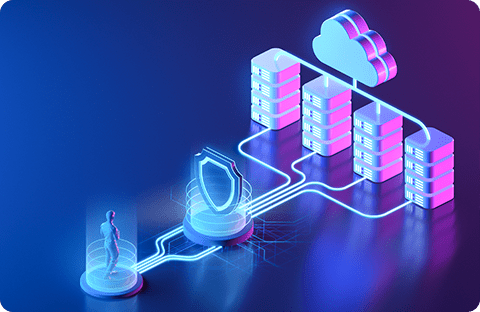
Its speeds are good
There’s a persistent myth that VPNs slow your internet connection. However, any good VPN service proves this myth wrong. Not only should you not notice any slow-down of your activities, some VPNs may even make your internet connection faster, by getting around ISP bandwidth throttling.

It has access to tons of servers
One of the best things about VPNs is their ability to change your location. However, if a VPN has too few servers, it can really limit the usefulness of the service. Select a service that has lots of servers in a wide range of locations around the world.

You can use it on multiple devices
Very few of us browse the web on just one device. Instead, we tend to swap between smartphones, tablets, laptops, and desktop computers. If you choose a VPN that can be used on one device only, you limit your online safety. Instead, opt for a service that can be installed and used on all of your devices.

It offers a trial run
Because the best VPNs cost a little bit of money, many people hesitate to use them because they don’t want to pay for a service, only to realize they don’t like it. Fortunately, many VPNs offer a trial run or a money-back guarantee so you can try them out without burdening your wallet.
VPN: A Deep Dive into the World of Privacy Tech
-
The World Wide Web as we know it today was launched in the early 1990s. Since then, it has become the home for much of our global culture, commerce, communication, and technology. It’s also home to digital dangers that lurk below the surface of what we can see, like sharks circling prey. Most people are already aware of the threat of cybercriminals, who are always ready to wreak havoc against unprotected users. But the dangers of the internet don’t stop there. Other organizations, including businesses, advertisers, your government, and more, can take advantage of you by collecting your unsecured data and violating your privacy.
-
In addition, although the internet was first designed to give everyone free and fair access to the world’s collection of digital content, it doesn’t always work like that in today’s day and age. In many places around the world, censorship, copyright regulations, and more limit what people can see and do online. Suddenly, mankind’s greatest invention is no longer free or fair.
-
But, although the internet harbours darker intent than it was initially created for, all is not hopeless. Many digital tools exist to protect users against the more insidious threats online. One of the best and most versatile of those tools is the VPN, or virtual private network.

